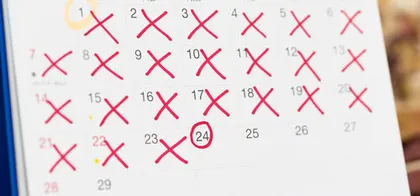13.33% of boys are obese. The future of male bodies is worrying


The overall overweight rate of residents in my country is 17.6%, and the obesity rate is 5.6%. The sum of the two is 23.2%.
The overweight rate in large cities is 25%, that in small and medium-sized cities is 21.6%, and the overweight rates in rural areas of Category I to Category IV are 17.4%, 15.1%, 19.2% and 12.8%, respectively.
The obesity rate in large cities is 10.6%, that in small and medium-sized cities is 7.2%, and the obesity rates in rural areas of Category 1 to Category 4 are 6.4%, 4.3%, 6% and 2.7% respectively.

One fifth of the world's obese population is in China.

Compared with the 1992 National Nutrition Survey data, the adult overweight rate has increased by 39%, and the obesity rate has increased by 97%. The obesity problem in China is increasing at a "worrying" rate. Experts predict that the number of obese people in China will exceed 200 million in the next decade.

The overweight rate in the 0 - 6 age group was 3.4%, the obesity rate was 2.0%, and the overall rate was 5.4%.
The overweight rate in the 7 - 17 age group was 4.5%, the obesity rate was 2.1%, and the overall rate was 6.6%.
The overweight rate in the 18-year-old group was 22.8%, the obesity rate was 7.1%, and the overall rate was 29.9%. The number of overweight and obese people currently reaches approximately 200 million and more than 90 million respectively.
Overweight and obesity have reached nearly 1/4 of the total population, becoming an important disease affecting residents 'health. With the process of urbanization, obesity will increase exponentially, and prevention and control work is urgent.


According to the "Youth Development Report (2000-2010)", the proportion of obesity among students of all age groups is increasing day by day, and speed, explosive power, strength, and endurance qualities continue to decline. In 2010, the detection rate of obesity among urban boys aged 7-22 nationwide was 13.33%, while that of rural boys also reached 7.83%, while that of urban and rural girls was 5.64% and 3.78%. The physical fitness and health quality of future men in China are worrying.

1. The larger your waist circumference, the greater your risk of developing high blood pressure. 20-30 When waistlines increase during the year, the incidence of hypertension is twice as high as that of people with normal waistlines in the same age; when waistlines increase during the age of 40-50, the incidence of hypertension is 50% higher than that of people with normal waistlines in the same age.
2. More likely to develop hyperlipidemia. Studies have shown that people with abdominal fat have several times higher risk of developing hypercholesterolemia and hypercholesterolemia than ordinary people.
3. More likely to develop cerebral atherosclerosis. Their cerebral blood vessels are hard and fragile, and they can easily rupture under the effect of high blood pressure, causing risky cerebral hemorrhage and even threatening life. Calculations show that the incidence of cerebral hemorrhage in men with enlarged waistlines is 3.3 percent of that in normal people. 6 times; foreign research has shown that under the condition of equal fat levels, the incidence of waist and brain blockage in abdominal fat people is 3-5 times higher than that in hip fat people. Moreover, compared with people with normal waistlines, people with thick waistlines have a significantly lower recovery after a stroke.
4. The incidence of angina pectoris and sudden death is 4 times higher than that of people with normal waist circumference. Some scholars have suggested that if your waist circumference exceeds the standard waist circumference by more than 30%, the chance of developing resentment within 10 years will greatly increase.
5. Can develop diabetes, especially type 2 diabetes. The prevalence of diabetes in men with thick waists can be up to four times higher than in men with normal waists. On the other hand, 80% of people with type 2 diabetes have excessive waistlines. Moreover, the longer you take to exceed the standard, the greater the chance of developing diabetes.

Liu Huan's fat figure brings a lot of inconvenience to life.
Martial arts star Hui Tianci died suddenly after being suspected of excessive weight loss.
Zeng Zhiwei.
Guo Donglin. var url = "http://dcxt.39.net/SurveyManage/DigVoteService.aspx? action=getdig&qid=1726&format=json&jsoncallback=? ";jQuery.getJSONurl, function json { ShowVote2json; };function ShowVote2json {
var i1 = json.survey_results;
if i1 > 0 {
for i = 0; i < i1; i++ {
jQuery"#a_dig_" + json.survey_result0[i].id.textjson.survey_result0[i].title;
jQuery"#i_dig_" + json.survey_result0[i].id.htmljson.survey_result0[i].Num;
}
}
}function SendVote2oid {
var url = "http://dcxt.39.net/SurveyManage/DigVoteService.aspx? action=senddig&qid=1726&oid=" + oid + "&format=json&jsoncallback=? ";
jQuery.getJSONurl, function json {
jQuery"#a_dig_" + oid.attr"onclick", '';
jQuery"#i_dig_" + oid.textjson.survey_result0[0].Num;
};
} After reading the article, are you worried about the physical fitness of future men? 0 worry 0 not worry